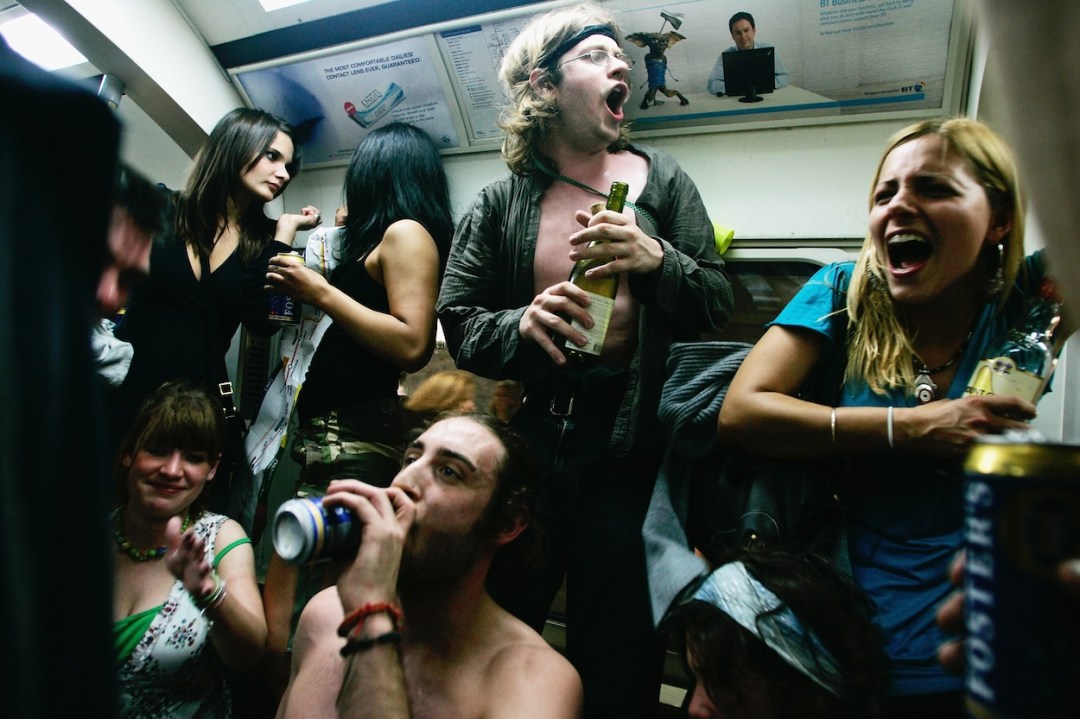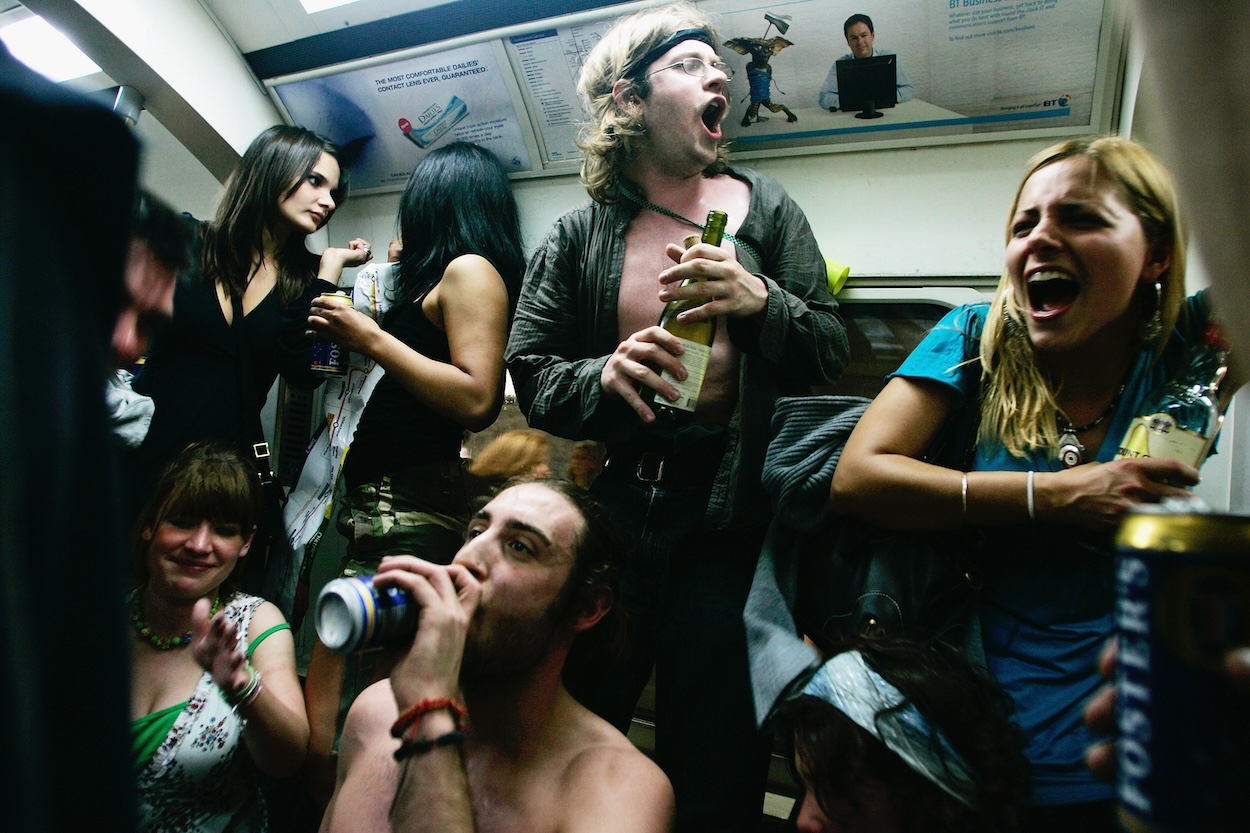By now, you have probably given up on Sober October. I’ve never done it, mainly because I’ve been sober for 15 years. There’s two things, however, that I’m truly thankful for. The first is that I gave up drinking before Instagram stories became a widespread means of social documentary. The second is that I had been sober for four years by the time the absurd country-wide rehab that is Sober October was established as a charity initiative by Macmillan Cancer Research in 2014.
But if I had still been drinking, I would never have thought it might apply to me. In fact, I would have relished the opportunity to loudly denigrate it, probably from a pub or while staggering around public places, as I often did. Such is the active alcoholic predicament. Dry January? Sod off; I’ll just have a pint of wine – or three – and enjoy the empty pub, thanks very much. A few nights off after a holiday? Again, you do you, as they say, but leave me well alone. For the addict in their cups, no amount of public shaming or cajoling is going to dent the edges of their denial. In fact, it might well have entirely the opposite effect – especially if you throw in worthiness or virtue-signalling, the rebel addict’s bêtes noires.
Sober October – a topic beloved of features editors – garners a vast amount of media attention. Yet it is a bogus and hollow creed. You can hardly open a newspaper in this month of national abstinence before you are accosted by several articles pegged to it. ‘What a month without drinking alcohol really does to your body,’ says the Telegraph, accompanied by three other articles detailing the best non-alcoholic beers and a first-person feature entitled ‘I’m trying intermittent sobriety because I enjoy drinking too much to give it up’. Clearly, in our booze-soaked culture, the idea of a month off provokes many column inches and some astonishingly magical thinking. Given that we have a profound alcohol problem in this country – Alcohol Change UK recorded 10,473 deaths due to alcohol-related causes last year, the highest on record – some initiative is in order.
But the idea that a month-long crash diet off the booze is going to address the root problem is laughable. Predictably, a 2021 study in the Drug and Alcohol Dependence journal found that those who participated in Dry January between 2015 and 2018 did not, in fact, change their long-term drinking habits – an oft-cited benefit of national abstinence months, where people are encouraged ‘to reset their relationship with alcohol’. Just like turning the Wi-Fi off on your phone, apparently.
Profound addicts, dare I say it, can’t tell the root from the branch – or even the tree, for that matter. Instead, Sober October and Dry January speak to the growing demographic of the ‘sober curious’: a largely female movement that abstains from alcohol for health and wellness benefits, not necessarily because of alcohol-use disorder. The term ‘sober curious’ was coined by wellness guru Ruby Warrington in her 2019 bestseller Sober Curious: The Blissful Sleep, Greater Focus, and Deep Connection Awaiting Us All on the Other Side of Alcohol. Warrington describes the movement as the ‘next logical step in the wellness revolution’. As if logic has anything to do with the bizarre behaviours of addiction. But maybe Warrington – and her vast social-media following – are becoming redundant, since Gen Z drink less than ever, their famous contempt for good old-fashioned socialising resulting in the sobering statistic that 21 per cent of them don’t drink at all. Presumably, Sober October will be a very easy challenge for the Zoomers, allowing them to focus on their sleep patterns and biome.
The Sober October narrative is so boring that it just might send you to sleep
Indeed, the Sober October narrative is so boring that it just might send you to sleep. What might wake people up, though, is an approach to alcohol intake in this country that isn’t a charity challenge or a sponsored 5k run – followed by a gigantic binge shortly afterwards, known to some as No Remember November. Might we, for example, take a less surface-level approach and examine some of the reasons that alcohol is so deeply embedded in our national culture? Could we examine why sobriety is still held in contempt by the drinking majority? Perhaps, instead of carping on about alcohol-free beer and 0 per cent gin and tonics, we could hear from people who stand a chance of speaking to the many who silently suffer from addiction, and for whom the noise of a press release will not reach.
I struggle to think of a catchy name for this, but something like Smug-Free September might work. Writing this, I can feel the old addict walking up and down within me, slamming doors and ordering drinks. She’s not looking for a drink, but that other addictive fix: the Instagram story. As I say, there are many reasons to be grateful.








Comments